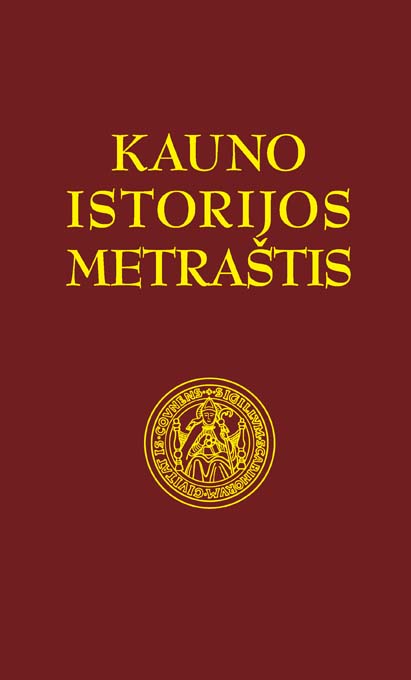Mūzos kuteno XVII a. kauniečius
Muses Were Tickling Kaunas Residents in the 18th Century
Author(s): Zigmantas KiaupaSubject(s): History, Literary Texts, 18th Century
Published by: Vytauto Didžiojo Universitetas
Keywords: Kaunas citizens; Occasional Literature; Lithuanian language; 18th century
Summary/Abstract: In the present article, the information is collected about the attempts of Kaunas residents (18th century) to rhyme and to serve the poetry muses. A part of the issues discussed are already known in historiography, while a part of them are presented from the repositories of historical sources. The object of the research, i.e. rhymed works are analysed from the perspective of a historian rather than a literary critic. The most important aspects are the circumstances and the time when the work was written, its authorship, and its social significance. The present article discusses the information by Ruigys (the end of the 17th century) about the song created by Kaunas burgomaster O Apwyneli Žallukieli. For the first time, the poetry written in Polish by an unknown author is presented; it mourns the consequences of the fire in Kaunas in 1732. It also discusses the panegyric of Kaunas magistrate members created in 1781 by Andrius Noreika in Latin and Polish; the circumstances of the poetry for the festivities on May 8, 1791 in Kaunas are analysed. The article also adds and revises the information about the time of the 18th century rhymed texts Iszpażynimas / Wyznanie and Asz Łuczynskas known in historiography (1791–1792 and 1799, respectively), their authorship (the opinion that the author is the scribe of Kaunas CityCouncil is supported), and the circumstances of writing them.The inclination to rhyme is a very personal feature, but it can be encouraged and developed by the conception of cultural life during one or another period. In the 18th century, in Kaunas and the whole Lithuania, poetry was one of the most important subjects in the schools of Jesuits and other monasteries, as well as in the schools of the skills acquired at school influenced writing on various occasions.The examples discussed in the present article were written as a response to the events in Kaunas or all state. The muses inspired Kaunas residents to write a lament or laudatory words at city (verses by Noreika) or state level (the lyrics of a cantata performed on May 8, 1791). The verses were written for public use, and the authors had the primary aim to respond to the events in Kaunas rather than write high poetry. Poetry muses were tickling Kaunas residents in the 18th century; however, they did not provide them with considerable creative powers.A slightly different situation can be observed with Iszpażynimu and Asz Luczynskas. They also respond to the events in the city, but the relationship with most characters is not warm or respectful. It might be that these verses were not intended for public; self-expression was more important for the author rather than public needs. The latter circumstance makes these two works interesting phenomena of the Lithuanian literature of the 18th century as they can be viewed as first indicators of new and important literary changes. This description is even strengthened by the fact that they are written in Lithuanian, differently from other verses. Including the Polish variant of Iszpażynimas, they do not fade in the context of a non-native (i.e. Polish or Latin) Lithuanian literature of the 18th century.
Journal: Kauno istorijos metraštis
- Issue Year: 2015
- Issue No: 15
- Page Range: 31-53
- Page Count: 23
- Language: Lithuanian

